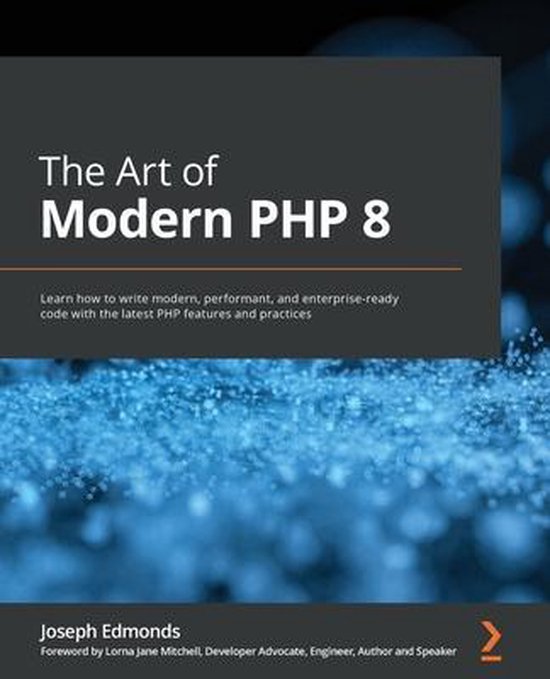The art of modern php 8

2 - 3 weken
This PHP programming book helps you get to grips with the latest features in one of the world's most used server-side languages - PHP 8. You'll get hands-on with modern PHP patterns and practices to overcome common and deep-rooted problems in managing legacy PHP applications with the help of practical examples.
Discover how to apply the principles of OOP, types, and package management the right way
Key Features Explore the latest PHP 8.1 features and modern web development practices Refactor your legacy codebase using modern features and styles in PHP Create your own Composer packages that can be reused across all PHP projects Book DescriptionPHP has come a long way since its introduction. While the language has evolved with PHP 8, there are still a lot of websites running on a version of PHP that is no longer supported. If you are a PHP developer working with legacy PHP systems and want to discover the tenants of modern PHP, this is the book for you.
The Art of Modern PHP 8 walks you through the latest PHP features and language concepts. The book helps you upgrade your knowledge of PHP programming and practices. Starting with object-oriented programming (OOP) in PHP and related language features, you'll work through modern programming techniques such as inheritance, understand how it contrasts with composition, and finally look at more advanced language features. You'll learn about the MVC pattern by developing your own MVC system and advance to understanding what a DI container does by building a toy DI container. The book gives you an overview of Composer and how to use it to create reusable PHP packages. You'll also find techniques for deploying these packages to package libraries for other developers to explore.
By the end of this PHP book, you'll have equipped yourself with modern server-side programming techniques using the latest versions of PHP.
What you will learn Understand how to use modern PHP features such as objects, types, and more Get to grips with PHP package management using Composer Explore dependency injection for your PHP applications Find out what the differences are between legacy and modern PHP 8 code and practices Write clean PHP code and implement design patterns Get hands-on with modern PHP using examples applying MVC and DI techniques Who this book is forThe book is for existing PHP developers and CTO-level professionals who are working with PHP technologies, including legacy PHP, in production. The book assumes beginner-level knowledge of PHP programming as well as experience with server-side development.
- 1 Bekijk alle specificaties